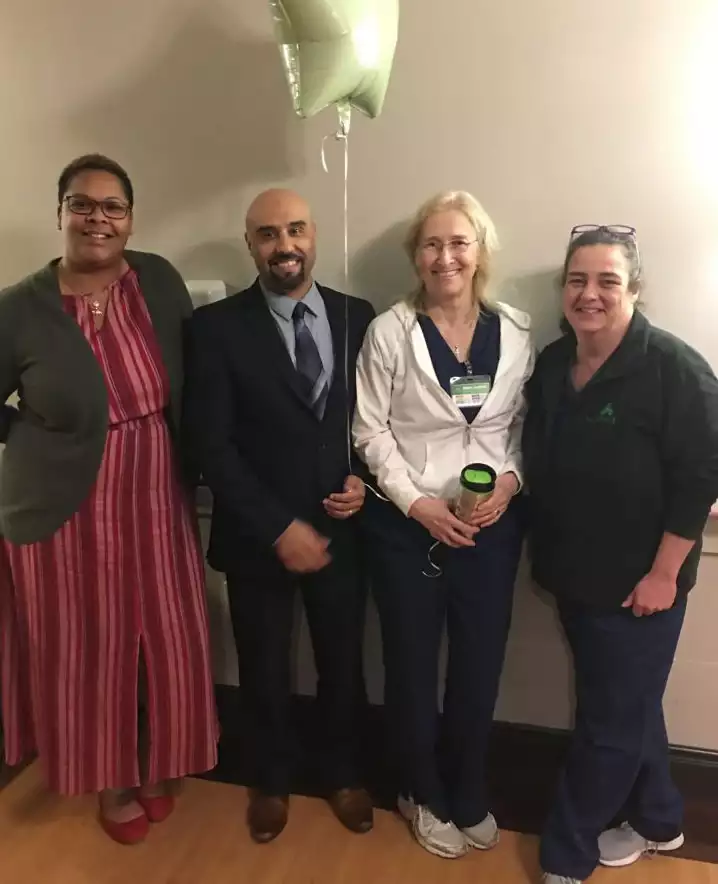
The world of healthcare is in perpetual motion, with new research findings, technological advancements, and evolving patient needs. As the industry’s dynamics shift, healthcare professionals must remain updated, making continuing education and professional development not just beneficial but crucial. This ensures the best possible care for patients and enables practitioners to stay at the forefront of their fields. The ripple effect of such dedication reaches beyond just the practitioner, creating a healthcare system that’s proactive, adaptive, and efficient.
Understanding the Fast-Paced Nature of Medicine
In no other industry is the adage “knowledge is power” more pertinent than in healthcare. Every day, new research papers are published, pioneering treatment modalities are introduced, and innovative diagnostic tools are developed. This rapid pace means that the knowledge and skills acquired during initial education can quickly become outdated. To maintain the highest standards of patient care, it’s essential for professionals to be lifelong learners, always seeking the next level of understanding and expertise. Recognizing this urgency can set a professional apart, making them not just competent but exceptional in their role.
The Multifaceted Benefits of Continuing Education
- Enhanced Patient Outcomes: At its core, the primary goal of all healthcare professionals is the well-being of their patients. Continual learning ensures that they’re equipped with the latest knowledge and techniques, directly benefiting patient outcomes.
- Career Advancement: Staying updated often leads to better job opportunities, promotions, and career longevity. Professionals who are current in their field are more likely to be recognized and rewarded.
- Regulatory and Licensing Requirements: Many healthcare professions have mandatory continuing education requirements to maintain licensure. This ensures a baseline of updated knowledge for all practicing professionals.
- Professional Satisfaction: Engaging in regular learning often rejuvenates one’s passion for the field, mitigating burnout and increasing overall job satisfaction. With a refreshed perspective, professionals can approach challenges with renewed vigor and optimism.
Modern Avenues for Professional Development
Thanks to technological advancements, there’s now a plethora of avenues for continuing education. Online courses, webinars, workshops, and teleconferences have made it easier than ever for professionals to access world-class resources without geographical constraints. Additionally, professional associations and institutions frequently host conferences, offering both learning opportunities and networking platforms. These resources, which are often tailored to cater to a variety of learning styles, reflect the modernization of educational methodologies.
The Interplay of Soft Skills in Healthcare
While clinical skills and medical knowledge remain paramount, the modern healthcare landscape also demands a strong set of soft skills. Communication, leadership, empathy, and teamwork are increasingly recognized as vital components of effective patient care. Regular training sessions and workshops can help professionals hone these skills, ensuring a holistic approach to healthcare that considers not just the ailment but the person behind it. Mastering these skills often translates to enhanced patient trust and rapport, further cementing the importance of their integration into medical curriculums.
The Collaborative Nature of Continuous Learning
Continuing education isn’t just an individual pursuit. It often fosters collaboration, as professionals from various disciplines come together to learn, discuss, and innovate. This interdisciplinary approach promotes a more comprehensive understanding of healthcare and fosters a sense of community among professionals. It’s through such collaborations that many groundbreaking solutions and methodologies emerge. Drawing from diverse backgrounds, they collectively enhance the breadth and depth of the industry’s knowledge base.
Challenges in Continuing Education
While the importance of continuous learning is widely recognized, several challenges persist. Time constraints, financial considerations, and sometimes even a lack of awareness about available resources can be barriers. However, with the increasing digitization of educational resources and the recognition of its importance, there are efforts at multiple levels to make continuing education more accessible and affordable to all. Institutions and organizations are stepping up, creating scholarships, grants, and flexible modules to accommodate these challenges.
Incorporating Feedback and Self-Assessment
An integral part of professional development is the ability to self-assess and incorporate feedback. Constructive criticism and evaluations can pinpoint areas of improvement, guiding one’s learning journey. Embracing a growth mindset, where feedback is seen as an opportunity for development rather than a critique, can greatly enhance the effectiveness of continuing education endeavors. This iterative process of feedback and improvement not only fine-tunes skills but also instills a culture of excellence.
Conclusion: Embracing the Journey of Lifelong Learning
In a field as vital and dynamic as healthcare, the journey of learning never truly ends. Continuing education and professional development aren’t just checkboxes to be ticked off but are intrinsic to the very fabric of the profession. By continually expanding their knowledge base and skill set, healthcare professionals not only ensure the best possible outcomes for their patients but also enrich their own professional journeys. Their commitment to this continuous journey underscores the sanctity of the healthcare profession, reminding us all of the deep-rooted dedication professionals have towards the betterment of humanity.
